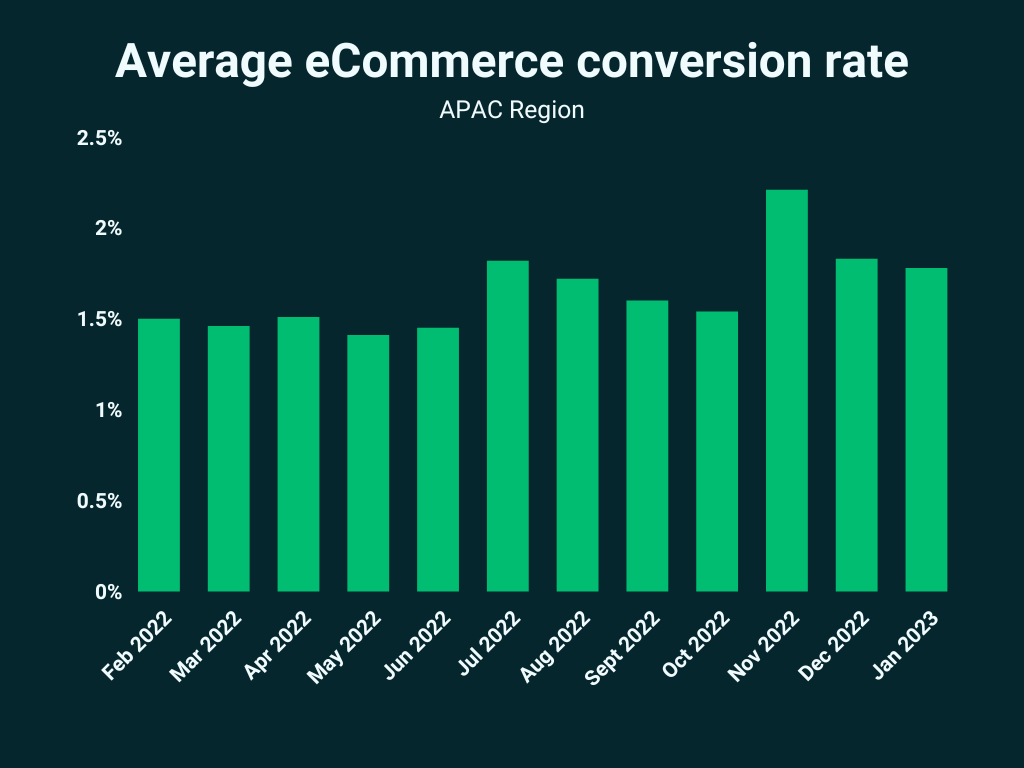Introduction: The Power of Finding the Right Job
Jobs Indeed for Career Advancement Finding a job that not only meets your financial needs but also offers personal satisfaction and aligns with your career aspirations is vital in today’s competitive environment. With countless opportunities available, the job search can be both exciting and overwhelming. Platforms like Jobs Indeed serve as crucial tools for navigating this landscape, helping job indeed seekers find positions that truly resonate with their skills and ambitions.
This article will delve deeply into how you can leverage Jobs Indeed to enhance your job search, explore current job market trends, develop your personal brand, and continually evolve your skills in an ever-changing professional landscape.
Understanding the Job Market
The Evolving Landscape of Employment
The job market has transformed dramatically over the past few decades. Understanding these changes can empower job seekers to make informed decisions about their careers.
Historical Context: How Job Markets Have Changed
Historically, job markets were often characterized by long-term employment relationships, where employees stayed with a single company for decades. However, several shifts have influenced today’s job landscape:
- Globalization: Companies can now operate on an international scale, which increases competition for jobs but also opens up new opportunities for workers worldwide.
- Technological Advancements: Automation and digital technologies have reshaped the nature of work. While some jobs have become obsolete, new roles in tech-driven fields have emerged.
- Cultural Shifts: Younger generations prioritize work-life balance, corporate culture, and social responsibility, influencing employer practices and job offerings.
Current Trends: Remote Work, Gig Economy, and Tech Integration
- Remote Work Revolution The COVID-19 pandemic has made remote work a mainstream option rather than a temporary solution. Companies across various industries have realized the benefits of remote arrangements, such as cost savings and access to a broader talent pool. As a result, remote job listings have surged, creating a wealth of opportunities for job seekers. For instance, remote positions in fields like IT, marketing, and customer service are now more prevalent, allowing individuals to work from virtually anywhere.
- Gig Economy The gig economy has fundamentally altered how people view employment. With platforms like Uber, Fiverr, and Upwork, workers can choose flexible gigs that align with their skills. While this provides freedom and diversity in work, it also requires self-management and proactive income planning, as gig work can be less stable than traditional employment.
- Technology Integration As industries embrace digital transformation, skills in technology are increasingly in demand. Job seekers must be adept at using various software tools and platforms, from basic office applications to advanced data analytics tools. Continuous upskilling in tech can significantly enhance employability, making it essential for job seekers to invest time in learning new technologies relevant to their fields.
The Importance of Job Platforms
Job platforms like Jobs Indeed play a pivotal role in the job search process. They simplify and streamline the experience, offering numerous advantages:
- Aggregated Listings: Jobs Indeed compiles job postings from various sources, allowing job seekers to access a broad spectrum of opportunities in one place.
- User-Friendly Interface: The platform is designed for ease of use, enabling candidates to search, filter, and apply for jobs efficiently.
- Resources and Insights: Beyond job listings, Jobs Indeed offers resources such as salary guides, company reviews, and career advice, which can help job seekers make informed decisions.
Navigating Jobs Indeed
Getting Started: Creating Your Profile
A strong profile on Jobs Indeed can enhance your visibility to potential employers. Here are key steps to consider when setting up your profile:
- Resume Upload: Ensure your resume is tailored to reflect your skills and experiences accurately. Use clear formatting and concise language to highlight your achievements.
- Profile Details: Complete all sections of your profile. Include not just your work history and education, but also any relevant certifications and skills. The more comprehensive your profile, the better your chances of being noticed by recruiters.
- Keywords: Incorporate industry-specific keywords throughout your profile. This can improve your visibility in search results and ensure that your profile aligns with the types of roles you are seeking.
Job Search Strategies
Once your profile is set up, it’s time to explore job opportunities. Here are several strategies to maximize your effectiveness on Jobs Indeed:
1. Utilize Filters
Filters are essential tools on Jobs Indeed that allow you to narrow down your search results based on specific criteria. Consider using filters for:
- Location: Search for jobs within a specific geographical area or explore remote opportunities.
- Job Type: Choose from full-time, part-time, contract, or internship roles to find positions that fit your availability and career goals.
- Salary Range: If compensation is a priority, use the salary filter to find jobs that meet your financial expectations.
2. Set Up Job Alerts
Setting up job alerts is a proactive way to stay informed about new opportunities. Here’s how to do it effectively:
- Customize Alerts: Tailor your job alerts based on keywords that reflect your desired job titles and industries.
- Frequency of Notifications: Decide how frequently you want to receive alerts—daily, weekly, or immediately upon posting.
- Stay Organized: Use a dedicated email address for job alerts to keep your inbox organized and focused on your job search.
3. Research Companies
Before applying, take the time to research potential employers. This will not only help you tailor your applications but also prepare you for interviews. Here’s how to conduct effective company research:
- Company Websites: Visit official websites to learn about their mission, values, and culture. Look for recent news or press releases to understand their current initiatives.
- Employee Reviews: Websites like Glassdoor and Indeed offer insights into employee experiences. Read reviews to gauge the company culture and management style.
- Social Media: Follow potential employers on social media platforms to stay updated on their activities, job postings, and corporate culture.
Crafting Effective Applications
Your application serves as your first introduction to potential employers, so making it stand out is crucial. Here’s how to craft compelling applications:
1. Tailor Your Resume
Customizing your resume for each application is essential. Here are some tips for effective tailoring:
- Match Job Descriptions: Carefully read job descriptions and identify the skills and qualifications that employers prioritize. Ensure these elements are prominently featured in your resume.
- Use Action Verbs: Begin bullet points with strong action verbs to convey your accomplishments effectively. For example, instead of saying “Responsible for managing a team,” say “Led a team of five to achieve project milestones.”
- Quantify Achievements: Whenever possible, use numbers to demonstrate your impact. For instance, “Increased sales by 20% within six months” provides concrete evidence of your contributions.
2. Write a Compelling Cover Letter
A well-crafted cover letter complements your resume and allows you to express your personality. Here’s how to write an effective cover letter:
- Personalize It: Address the hiring manager by name, if possible, and mention the specific job you are applying for.
- Tell Your Story: Use the cover letter to explain why you are passionate about the role and how your background uniquely qualifies you for it. Share anecdotes or experiences that illustrate your fit for the position.
- Conclude Strongly: End with a call to action, expressing your enthusiasm for the opportunity to discuss your application further.
3. Follow Up
After submitting your application, consider sending a follow-up email. Here’s how to do it effectively:
- Timing: Wait about one week after applying before following up. This gives the employer time to review applications.
- Keep It Short: Your follow-up should be concise. Thank them for considering your application, express your continued interest, and inquire about the status of your application.
- Professional Tone: Maintain a professional tone throughout your email, as this reflects your communication skills.
Preparing for Interviews

The Art of Interviewing
Interviews can be nerve-wracking, but thorough preparation can ease anxiety and increase your chances of success. Here are key steps to prepare effectively:
1. Research Common Questions
Familiarizing yourself with common interview questions can help you feel more confident. Here are a few categories to focus on:
- Behavioral Questions: These questions often begin with “Tell me about a time when…” and require you to provide specific examples from your past experiences. Use the STAR method (Situation, Task, Action, Result) to structure your responses.
- Technical Questions: Depending on your field, be prepared to answer questions that test your technical knowledge and problem-solving skills.
- Cultural Fit Questions: Employers want to know if you will fit into their team and culture. Be prepared to discuss your values, work style, and how you collaborate with others.
2. Dress Appropriately
First impressions matter, and your appearance can significantly impact the interviewer’s perception of you. Here’s how to dress for success:
- Research Company Culture: If the company has a formal dress code, opt for business attire. If it’s more casual, aim for a smart-casual look.
- Plan Ahead: Choose your outfit the night before to avoid last-minute stress. Ensure that your clothes are clean, pressed, and fit well.
- Consider Grooming: Pay attention to grooming details, such as hair, nails, and accessories, to present a polished image.
3. Prepare Questions
Preparing thoughtful questions to ask the interviewer can demonstrate your interest in the role and help you assess whether the company is the right fit for you. Consider asking about:
- Team Dynamics: Inquire about the team you would be working with and how collaboration typically occurs.
- Career Development: Ask about opportunities for growth and professional development within the company.
- Company Culture: Understanding the company’s culture can help you gauge if it aligns with your values and work style.
Leveraging Networking Opportunities
The Power of Connections
Networking is a crucial aspect of career advancement. Building connections can lead to job referrals, mentorship opportunities, and valuable industry insights.
1. Online Communities
Engaging in online communities related to your industry can enhance your networking efforts. Here’s how to make the most of these platforms:
- Join Relevant Groups: Participate in LinkedIn groups, forums, and other online communities that focus on your industry or interests.
- Share Insights: Contribute to discussions by sharing your knowledge and expertise. This can help establish your authority and make valuable connections.
- Ask for Advice: Don’t hesitate to reach out to professionals in your network for advice or mentorship. Most people appreciate being asked for their insights.
2. Attend Industry Events
Industry events, whether in-person or virtual, provide excellent opportunities for networking. Here’s how to make the most of these events:
- Prepare an Elevator Pitch: Have a concise elevator pitch ready to introduce yourself to new contacts. Focus on your background, interests, and what you’re looking for in your career.
- Engage in Conversations: Approach attendees with confidence. Start conversations by asking questions about their work and sharing your experiences.
- Follow Up: After the event, follow up with the contacts you made. Send a brief message thanking them for the conversation and expressing interest in staying connected.
3. Use Social Media
Social media platforms, particularly LinkedIn, can be powerful tools for networking. Here are some strategies to enhance your presence:
- Optimize Your Profile: Ensure your LinkedIn profile is complete and showcases your skills and accomplishments.
- Share Relevant Content: Post articles, insights, or updates related to your field. Engaging content can attract attention and spark discussions.
- Connect with Industry Leaders: Reach out to professionals in your industry. Personalize your connection requests to increase the likelihood of acceptance.
Building Your Personal Brand
The Importance of Personal Branding
In today’s competitive job market, personal branding is crucial for standing out from the crowd. A strong personal brand helps you convey your unique value to potential employers.
Steps to Build Your Brand
1. Define Your Unique Value Proposition
Identifying what sets you apart from others in your field is the foundation of your personal brand. Consider:
- Your Skills: What skills do you excel at that are in demand in your industry?
- Your Experiences: Reflect on unique experiences that have shaped your career journey.
- Your Values: Consider what values you want to represent in your professional life.
2. Create a Professional Online Presence
Your online presence is often the first impression potential employers have of you. Here are ways to enhance it:
- Optimize Your LinkedIn Profile: Use a professional photo, write a compelling headline, and ensure your summary reflects your career goals and achievements.
- Engage in Professional Groups: Join industry-related groups on LinkedIn and participate in discussions. This can help establish your expertise.
- Consistent Branding: Ensure consistency across all your professional profiles, including your resume, LinkedIn, and any other platforms you use.
3. Share Your Expertise
Demonstrating your knowledge through content creation can enhance your personal brand. Here are ways to share your expertise:
- Write Articles: Consider writing articles on platforms like LinkedIn or Medium that showcase your insights and knowledge.
- Create Videos or Webinars: If comfortable, create video content or host webinars to share your expertise with a broader audience.
- Engage with Others: Comment on and share relevant content from others in your field to foster engagement and build relationships.
Continuous Learning and Skill Development
Embracing Lifelong Learning
In a rapidly evolving job market, continuous learning is essential for career success. Staying updated with industry trends and enhancing your skills can significantly boost your employability.
1. Online Courses
With the rise of online learning platforms, accessing courses has never been easier. Consider:
- Identifying Skill Gaps: Assess your current skills and identify areas for improvement that are relevant to your career goals.
- Reputable Platforms: Explore platforms like Coursera, Udemy, and LinkedIn Learning, which offer a wide range of courses across various fields.
- Setting Learning Goals: Set specific, achievable goals for completing courses. Consistency is key to retaining knowledge and applying new skills effectively.
2. Certifications
Pursuing certifications can validate your skills and enhance your resume. Here are steps to consider:
- Research Industry-Recognized Certifications: Identify certifications that are well-regarded in your industry. For instance, project management, digital marketing, and data analysis certifications are highly sought after.
- Prepare for Exams: Allocate sufficient time to study and prepare for certification exams. Utilize practice tests and study groups for effective preparation.
- Showcase Certifications: Once earned, prominently display your certifications on your resume and LinkedIn profile to highlight your commitment to professional development.
3. Stay Informed
Keeping up with industry news and trends is vital for staying relevant. Here are ways to stay informed:
- Subscribe to Industry Publications: Follow industry-specific publications, blogs, and newsletters to receive regular updates on trends and developments.
- Join Professional Associations: Many industries have professional organizations that offer resources, networking opportunities, and events.
- Attend Webinars and Conferences: Participate in webinars and industry conferences to learn from experts and network with peers.
Conclusion: Your Journey Starts Here
Finding the right job is a journey that requires patience, persistence, and the right tools. Platforms like Jobs Indeed empower job seekers by providing resources and support throughout the job search process.
As you embark on this journey, remember that every application is a step toward your ideal job. Embrace the challenges, celebrate the successes, and keep pushing forward. Your dream job is within reach—take the first step today.for more post read this networksights.com














Leave a Reply